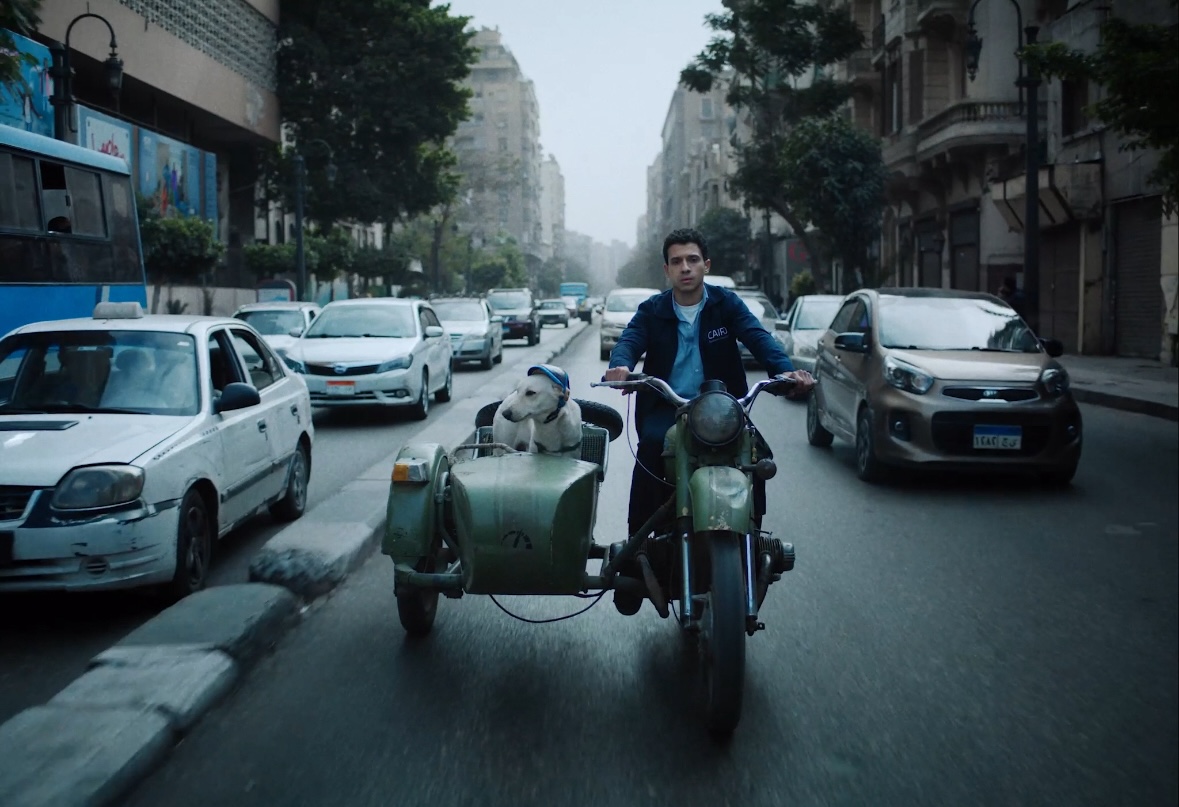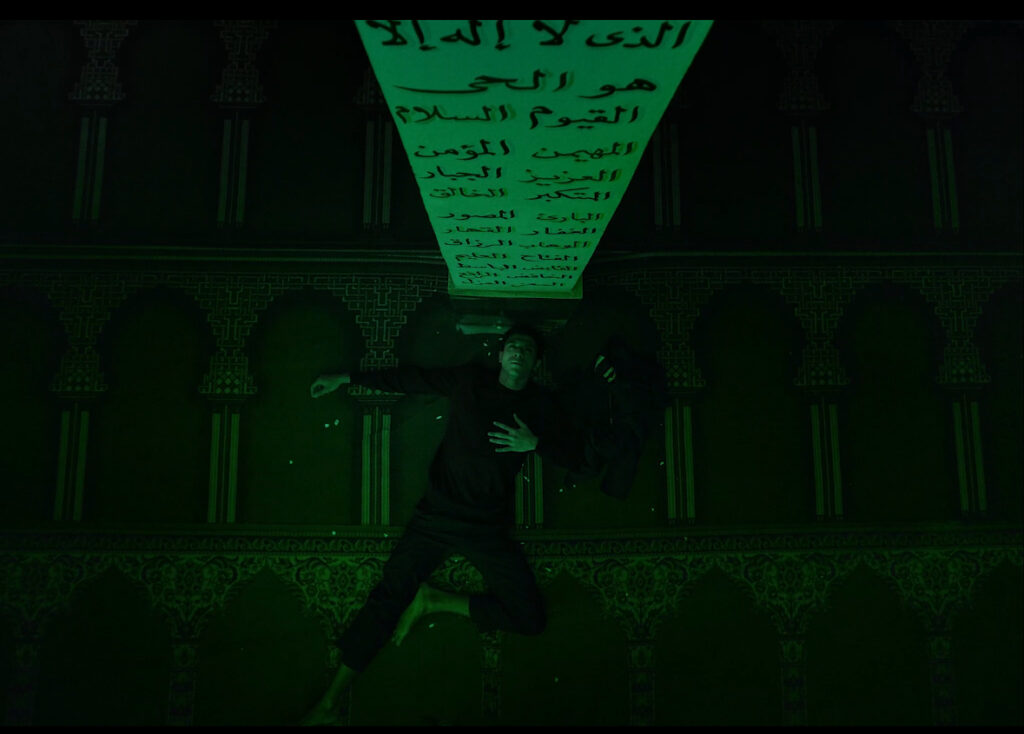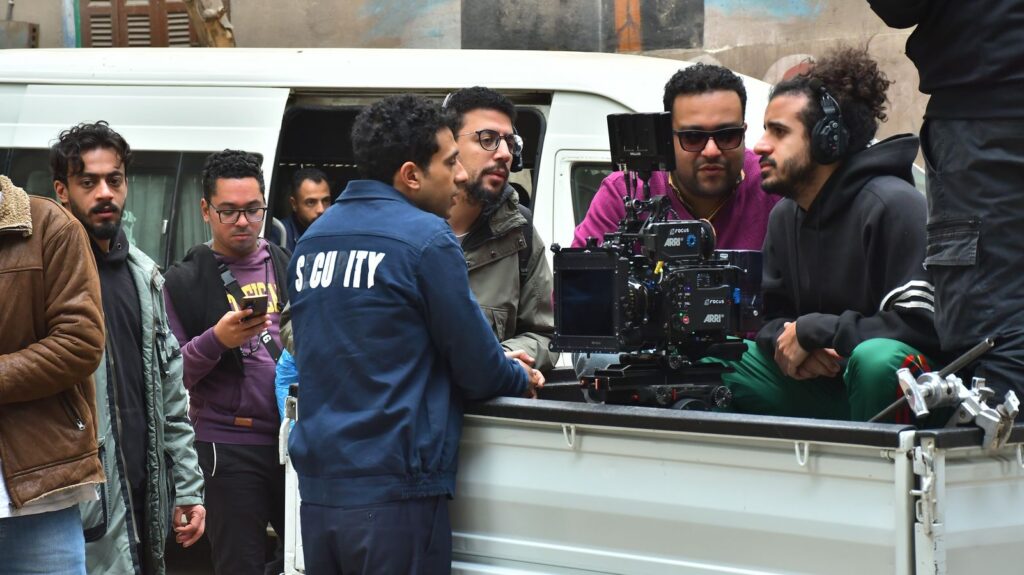 Posted in
Feature, Seeking Haven for Mr. Rambo
Posted in
Feature, Seeking Haven for Mr. Rambo
Seeking Haven for Mr. Rambo: a man and his dog fight for home
Text Chaima Gharsalloui
Amid the 81st Venice Film Festival’s stacked lineup, Khaled Mansour’s Seeking Haven for Mr. Rambo cut through the noise—a raw, unflinching portrait of survival, dignity, and the quiet desperation that binds a man to his dog. The film follows 30-year-old Hassan, who faces eviction alongside his overprotective mother and his loyal dog, Rambo, from their modest home in Cairo. When their landlord, Karem, begins a revenge-driven pursuit of Rambo after an altercation, Hassan is forced to protect his companion as they embark on a perilous journey through Cairo’s frenzied streets.
While the film might seem like a tale of pure survival at first glance, it quickly becomes apparent that it also examines how their human-canine bond shapes Hassan’s sense of self. The boundary between Hassan and Rambo is blurred, and this is the essence of the film. In one unforgettable scene, Hassan holds a mirror to Rambo’s reflection, and their identities merge in a poignant visual metaphor.
As Mansour puts it, “This scene was always clear in my mind. I wanted to show how Rambo is not just a dog but an extension of Hassan and vice versa. Rambo is not a mere pet but a lifeline in a world full of hostility and indifference.” Mansour deliberately chose a “kalb balady” (local street dog), a marginalized figure in Egyptian society, to emphasize the alienation both Hassan and Rambo face. “These dogs are often seen as less than pets in Egyptian society. I asked for a specific stray dog, and we put him in a training centre for a few months. We followed his diet and training closely to prepare him for the film.”

Unravelling the inspiration that drove the film’s narrative, the director recalls a particular incident that haunted him: “The idea came from an image I kept seeing of a man holding a dog in the dark, shivering in the cold. I did not know where this vision came from at first. Later, I connected it to an accident involving a dog at El Ahram in Chobra.”
Mansour anchored his exploration of identity and survival in the socio-political backdrop of Cairo. It is a character in and of itself, and it shapes both the psyche and the fate of our protagonist. The city is vertical, it is hierarchical in its glory and misery. It conquered its characters, and no hero’s journey is typical in such a setting. Hassan, a low-income security guard, moves between his architecture firm’s elite, sanitized spaces and his working-class neighbourhood’s grimy, crumbling streets. As the story unfolds, Hassan descends even lower into the underground dogfighting rings. The brutal world of dogfights becomes a metaphor for the violence and oppression lurking beneath Cairo’s surface. Mansour comments on this contrast: “Cairo is a painful and inspiring city, charming and suffocating simultaneously. It lives in my subconscious, in my relationships. Cairo is not for beginners.” The juxtaposition of the vibrant, waking city and Hassan’s quiet, weary figure captures the essence of the film: a story of survival in a town that both nurtures and destroys.

The cinematography is crucial in shaping the film’s visceral atmosphere. With long, unbroken tracking shots and an almost documentary-like realism, the camera invites the viewer into Hassan’s world and makes us feel the weight of his isolation. The sparse dialogue, combined with the meticulous framing of confining, oppressive spaces, enhances the rawness of the narrative. Mansour alternates between the harsh, clinical glow of urban fluorescents and the warm, intimate flicker of domestic moments, tormenting us with the relentless duality that fashions every aspect of Hassan’s life.
Another focal theme in the film is loss. Hassan has lost his father, the woman he loves is with another man, and now his only constant, Rambo, is in jeopardy. In a powerful moment, Hassan lies with Rambo, listening to his father’s voice on pre-recorded tapes, singing Shagar El Lemoon by the iconic Mohamed Mounir: “Everything is stolen from me, the years from my life, the light from my eyes. Everything around me calls out to me; inside, I call out to you. Do you hear me? Where are you?” The song, once a classic of Egyptian music, has resurged in popularity since the film’s release. It became synonymous with Hassan’s grief and yearning. Mansour’s choice to keep the father’s presence as a distant voice speaks volumes. “I want the audience to project their own emotions and interpretations onto Hassan’s relationship with this absent father figure,” he says. “The fragments of his life should remain an unresolved puzzle.”




The cast features Essam Omar, Rakeen Saad, and Ahmed Bahaa. Their masterful acting is what brings depth to the characters. Khaled revealed his casting choices were deliberate: “I selected actors who had never been seen in such roles before to avoid preconceived notions.” This fresh approach gives the characters a sense of authenticity, free from cinematic baggage.
Seeking Haven for Mr. Rambo has garnered international acclaim, winning the Jury Prize at the Med Cinema in Belgium, the Red Sea Film Festival in Saudi Arabia, the Duhok International Film Festival in Iraq, etc. With Seeking Haven for Mr. Rambo, Khaled Mansour has masterfully crafted a cinematic work that strikes a universal chord, while remaining profoundly anchored in the distinct realities of Egyptian life. The film offered his audience a cinematic experience that is both deeply personal and globally significant.
